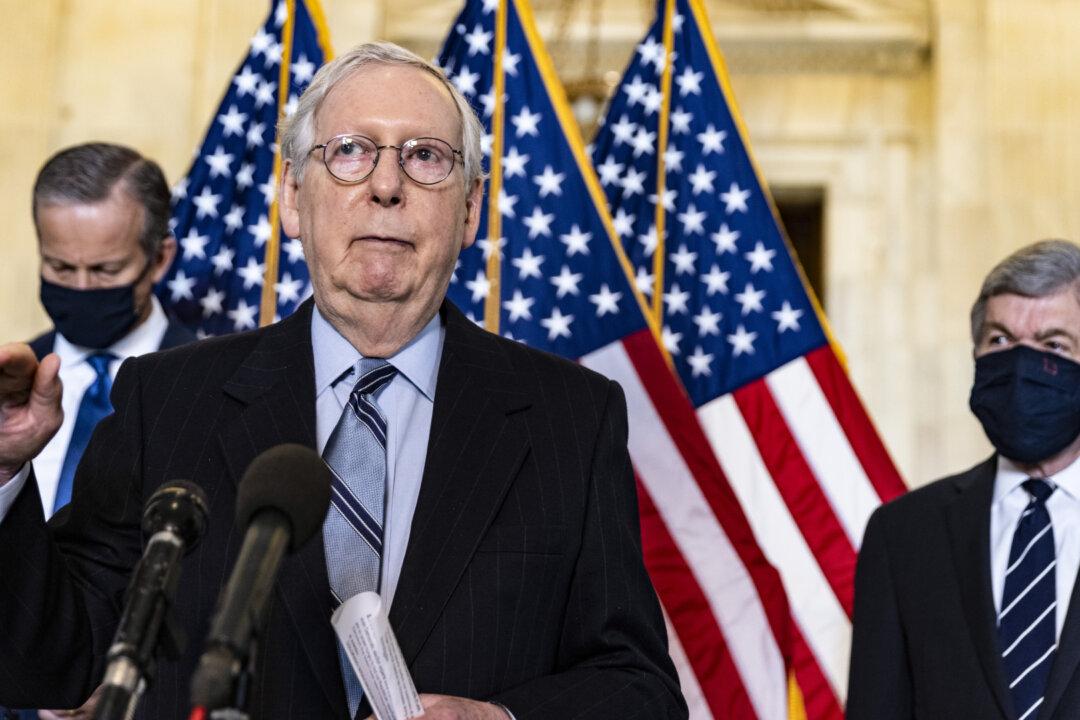Senate Minority Leader Mitch McConnell (R-Ky.) on Wednesday signaled he is unlikely to support President Joe Biden’s $2 trillion infrastructure package, saying he would not back spending or “massive” tax hikes that could balloon the national debt.
Echoing remarks he made last week, McConnell said in a statement that Biden’s infrastructure plan will likely be a “Trojan horse” that includes other Democratic priorities such as tax hikes to fund the plan.





